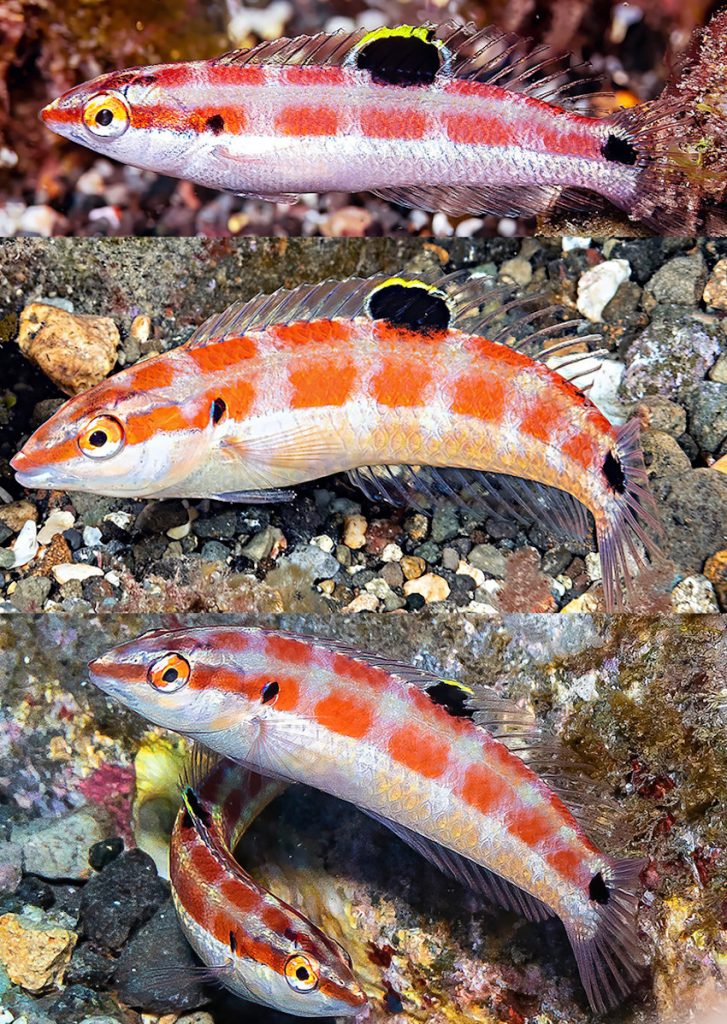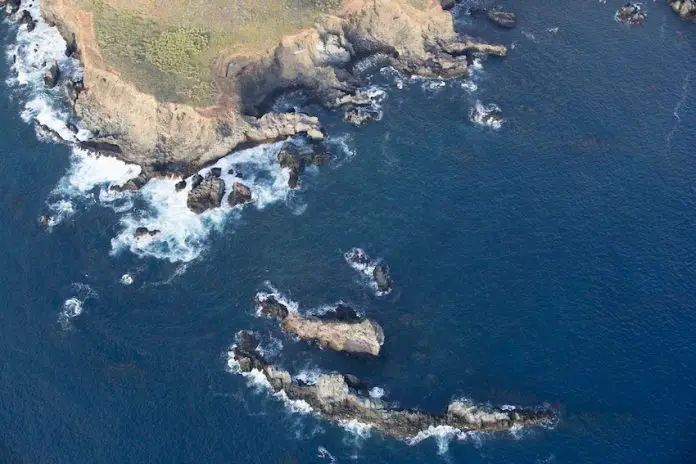A new species of tropical fish was discovered within Mexico’s Revillagigedo Archipelago, located over 400 kilometers southwest of the state of Baja California Sur.
Scientists from UC San Diego’s Scripps Institution of Oceanography believe the fish, dubbed a tailspot wrasse, is endemic to the waters around the four islands that comprise the archipelago.

The eight specimens collected range in size from one inch to nearly six inches. The females, smaller than the males, appear white with reddish horizontal stripes on top with dispersed black patches. The males are orangey red on top with a yellow belly and a dark band near the tail.
The fish has been named Halichoeres sanchezi in honor of marine scientist Carlos Armando Sánchez Ortiz of the Autonomous University of Baja California Sur, who collected the first specimen in an underwater field of volcanic rubble and lava boulders.
According to an abstract published Wednesday in the academic journal Peer J, the discovery was made during the last day of a November 2022 expedition to inventory the archipelago’s ichthyofauna, defined as the fish life in a specific body of water or zoogeographic region.
The researchers relied on underwater photographers to systematically document specimens in situ, before hand-collecting the fish.
During the two-week expedition, the group made 30 research dives that produced 5,500 photographs and collected roughly 900 specimens representing more than 100 fish species.
Ben Frable, a member of the expedition and co-author of the paper, believes two more previously unknown species could be identified from specimens collected on the trip.
Granted in 1861 to the Pacific Coast of Colima to establish a penal colony, the Revillagigedo Archipelago is part of a submerged mountain range, its four islands the peaks of underwater volcanoes.
The waters of the archipelago, popular with scuba divers, have an abundance of large pelagic species, such as manta rays, whales, dolphins and sharks, as well as sea turtles.
In June 2016, the archipelago was named a UNESCO World Heritage Site, while in 2017 it was declared a national park and a marine reserve, the largest such protected area in North America. The marine reserve covers 150,000 square kilometers (57,000 square miles), and is protected from fishing, mining and tourism development.
With reports from Axios San Diego and UC San Diego Today
